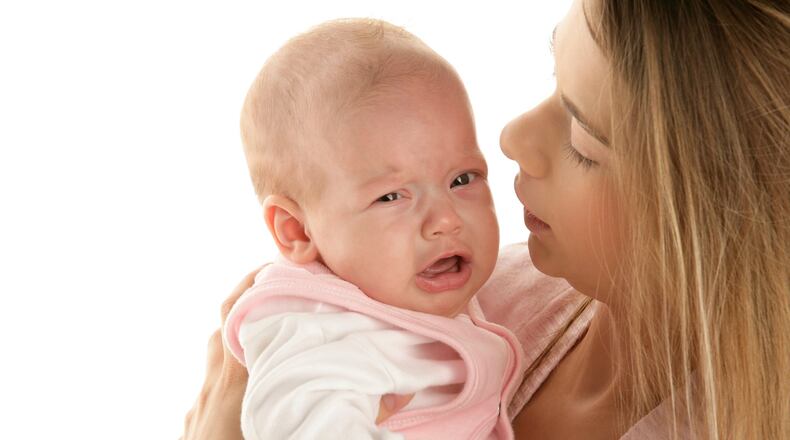Dayton Children’s has seen 128 instances of shaken baby since 2011 with a 13 percent death rate. This is compared to a one percent death rate among all others traumas that we see. So shaking a baby is more likely to have a deadly outcome than any other trauma.
Unlike other traumas, such as a car accident when a child is transported immediately to the emergency room, with a shaken baby there is often a delay in treatment because symptoms may not be apparent right away. In addition, no one wants to admit that they hurt a baby, so they don’t seek help until symptoms can no longer be ignored.
Even if a baby survives a shaking episode, his or her life can be irrevocably altered by severe brain damage. They may never be able to see, hear, walk or even breathe on their own for the rest of their lives.
As the New Year unfolds, there is an opportunity to recommit to the health and safety of all children. The biggest message to prevent shaking or otherwise abusing a baby or child — have a plan.
Babies cry, sometimes uncontrollably. Give yourself the permission to put your baby safely in his or her crib and walk away. Take a few minutes for yourself, even going out on the porch if necessary. Call a supportive family member or friend to share your frustration or ask for help. If you are near your breaking point, make sure baby is safe, walk away and let baby cry. Crying babies will live, shaken babies may not.
If you are placing your child in the care of someone else, talk about their plan. Give that caregiver permission to put a crying baby in a safe place and identify calming strategies that will work for them.
If you aren’t currently caring for a child, but know someone who is, please share this information with them. Support them in their moments of hardship and help them identify appropriate plans to manage the often overwhelming work of parenting.
Raising children is hard work. “I know as a mother I wish I could understand why my 18-month-old cries — is she hungry, does her head hurt, does she just want to be held?” says Jessica Saunders, director for the Center of Child Health and Wellness. “I know how frustrating it can be to not have all of the answers. Sometimes the best answer is just to breathe.”
About the Author

